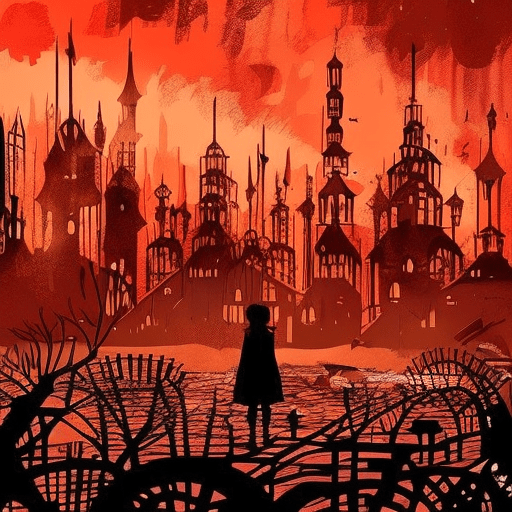The Book Thief: A Heartbreaking Tale of Love, Loss, and the Power of Words
Set in Nazi Germany during World War II, “The Book Thief” by Markus Zusak is a poignant and powerful story that follows the life of Liesel Meminger, a young girl who finds solace in books amidst the chaos and destruction of war. Through the eyes of Death, the narrator, we witness Liesel’s journey as she navigates the horrors of war, discovers the power of words, and learns the true meaning of love and friendship.
The Power of Words: Finding Solace in Books
Liesel Meminger, a young girl with a passion for books, discovers the transformative power of words. After her brother’s death and her mother’s inability to care for her, Liesel is sent to live with foster parents, Hans and Rosa Hubermann, in the fictional town of Molching. Illiterate at first, Liesel slowly learns to read with the help of her foster father. As she immerses herself in the world of literature, she finds solace and escape from the harsh realities of war.
Liesel’s love for books deepens when she begins stealing them. With the help of her friend Rudy, she sneaks into the library of the mayor’s house and “borrows” books. Through these stolen books, Liesel discovers the power of words to transport her to different worlds, to provide comfort and companionship, and to ignite her imagination. The act of stealing books becomes an act of rebellion against the oppressive regime, a way for Liesel to assert her own agency and find a sense of freedom.
Love and Friendship in the Midst of War
As Liesel’s life becomes increasingly entangled with the war, she forms deep connections with the people around her. Her foster father, Hans, is a gentle and compassionate man who teaches her the importance of kindness and empathy. He becomes a father figure to Liesel, offering her love and support in a time of great darkness.
Liesel also develops a close bond with Max Vandenburg, a Jewish man who seeks refuge in the Hubermann’s basement. Max and Liesel share a love for words and books, and their friendship becomes a source of strength and hope for both of them. Through their shared experiences and mutual support, they find solace and resilience in the face of unimaginable hardship.
The Horrors of War and the Fragility of Life
“The Book Thief” vividly portrays the horrors of war and the devastating impact it has on individuals and communities. Liesel witnesses the brutality of the Nazi regime, the burning of books, and the persecution of Jews. Death, the narrator, serves as a constant reminder of the fragility of life and the indiscriminate nature of death during wartime.
Despite the darkness and despair that permeate the story, “The Book Thief” also highlights the resilience of the human spirit and the power of love and friendship to endure even in the darkest of times. Liesel’s journey is a testament to the strength of the human heart and the capacity for hope and compassion.
- Words have the power to heal, inspire, and provide solace even in the midst of war.
- Love and friendship can flourish in the most unlikely of circumstances.
- The human spirit is resilient and can endure even in the face of unimaginable hardship.
“I have hated words and I have loved them, and I hope I have made them right.”
– Markus Zusak, The Book Thief
In conclusion, “The Book Thief” is a heart-wrenching and beautifully written novel that explores the power of words, the resilience of the human spirit, and the enduring bonds of love and friendship. It serves as a reminder of the importance of empathy, compassion, and the pursuit of knowledge even in the darkest of times.












